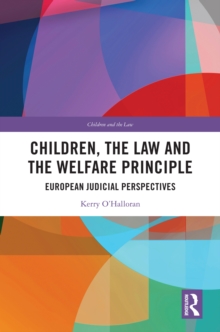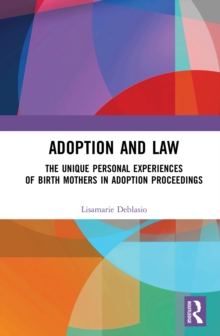
Children, the Law and the Welfare Principle : European Judicial Perspectives Hardback
by Kerry (Queensland University of Technology, Australia) O'Halloran
Part of the Children and the Law series
Hardback
Description
This book continues the themes addressed by its five predecessors in this series by examining the role of the principle of the welfare interests of the child as addressed in international legislation and by international courts. It provides a record of the key cases in the development of the principle as articulated primarily by the European Court of Human Rights (ECtHR) and complemented by rulings of the Court of Justice of the European Union (CJEU), and the United Nations Committee on the Rights of the Child (UN CRC).
It identifies and assesses themes arising from the many decades of ECtHR cases dealing with issues affecting the welfare interests and rights of children as referred to the Court from the 46 Member States that comprise the Council of Europe.
By differentiating between the functions of the welfare principle and those of children’s rights – in the public (care, protection, and control), in the private (matrimonial, adoption, etc.), and in the hybrid (adoption from state care, etc.) sectors of family law – it reveals how the law relating to children is changing across Europe.
By examining the international framework of legislation and related caselaw it identifies and assesses the themes in that law as they have unfolded over time. In addition to a digest of international cases and legislation – that identifies and tracks the role of the welfare principle and the emerging rights of children – lawyers, academics, and other researchers will find a wealth of information on how the law has evolved to reflect corresponding changes in social mores.
For those interested in politics and social policy, there is much illuminating evidence on how the law has balanced this principle relative to others – such as proportionality and subsidiarity – within both civil and criminal contexts.
Information
-
Out of stock
- Format:Hardback
- Pages:290 pages
- Publisher:Taylor & Francis Ltd
- Publication Date:02/04/2024
- Category:
- ISBN:9781032710624
Information
-
Out of stock
- Format:Hardback
- Pages:290 pages
- Publisher:Taylor & Francis Ltd
- Publication Date:02/04/2024
- Category:
- ISBN:9781032710624










